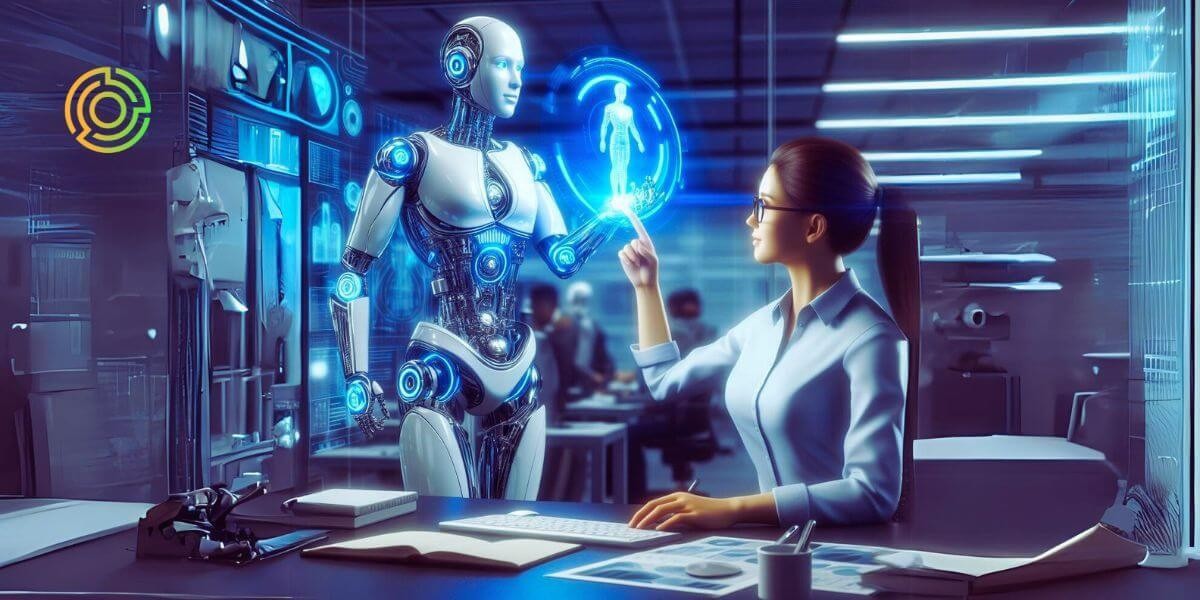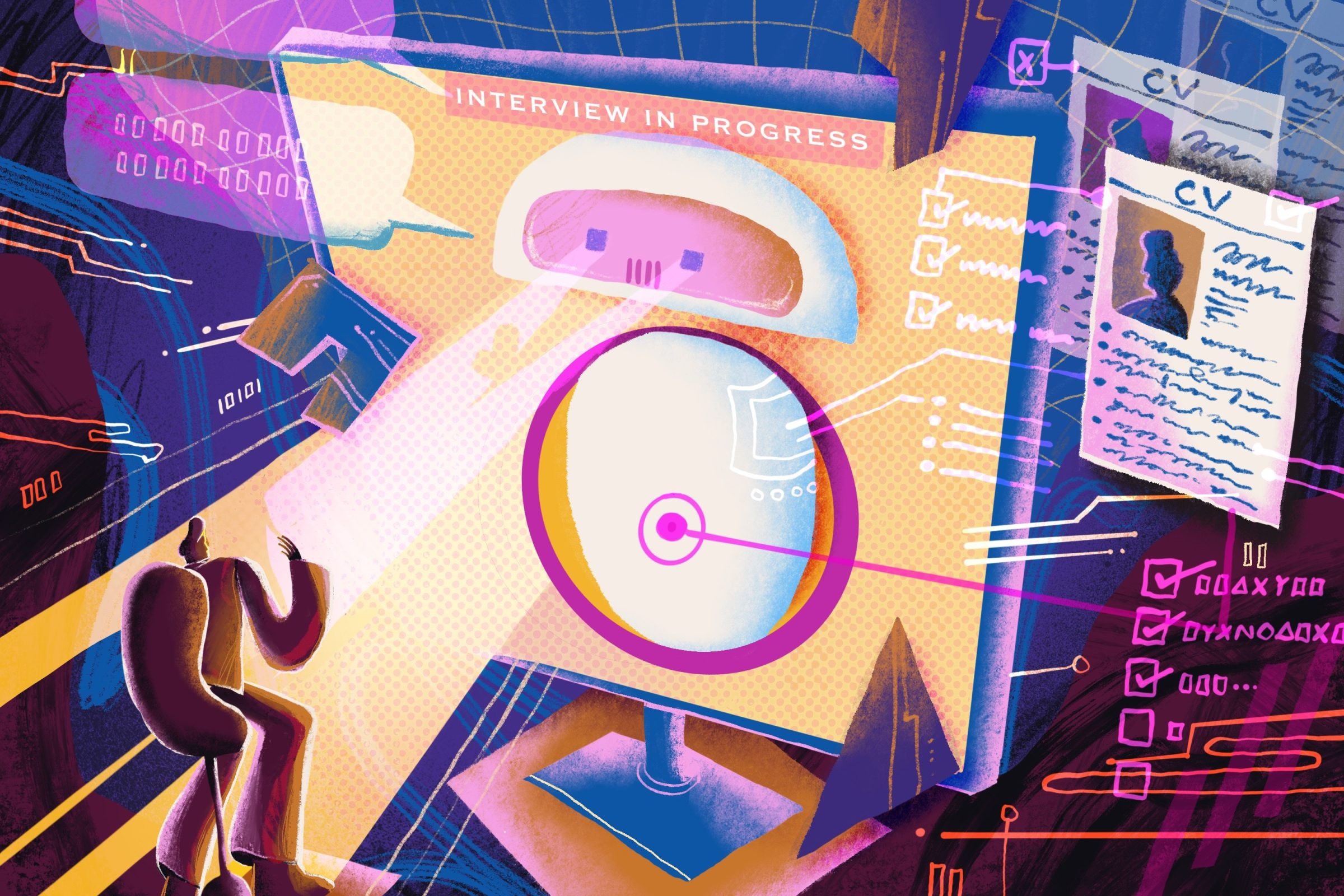AI recruiters are expected to eliminate bias and focus only on candidates' abilities.
When Floria Tan applied for an internship at Meituan, China's food delivery giant, her first interview wasn't with a real person.
The AI-generated interviewer was a woman around Tan's age with a friendly smile. The interviewer gave a brief introduction to Meituan and asked a series of pre-set questions like "What challenges have you faced in the past?" After each answer, the AI interviewer summarized what was said and asked a follow-up question.
The interviewer is an AI avatar, working from a list of pre-defined questions but using a large language model to generate authentic-sounding dialogue. But Tan told Rest of World it felt more like taking a written test than having a conversation. “I don’t consider it a real person,” she said. “I just look into the camera and talk.”
Once considered a curiosity, AI job interviews have become more common as startups look to build their businesses around the surprising capabilities demonstrated by platforms like OpenAI. Most will resort to this approach when they want to sift through thousands of candidates at once without committing too much effort, manpower, or money. But as companies scramble to integrate AI into their businesses, experiences like Tan’s will become commonplace.
The idea of using large language models to further automate the recruiting process has taken off in the corporate world in the United States. A 2023 survey of 1,000 U.S. employees by ResumeBuilder found that 10% of companies were already using AI in their recruiting process, and another 30% planned to incorporate AI in the following year. Research firm Gartner listed natural language chatbots as one of the key innovations for the recruiting industry in 2023, calling the technology experimental but promising.
The solution is currently popular in China and India. Many candidates applying to companies such as Siemens, China Mobile and Estee Lauder have had similar experiences with AI-assisted interviews in China, according to social media posts.
MoSeeker, a Chinese AI recruiting system provider that conducts hundreds of thousands of automated interviews a year, says multinationals including Disney and Mars are among its clients. Platforms like Talently.ai, Instahyre and Intervue are AI models used by Indian companies in the hiring process.
There are many different ways to automate the hiring process. The first step is simply to standardize the list of questions asked during the initial interview, a measure often adopted as an attempt to combat cultural bias. When questions are standardized, there is only minimal benefit to the presence of a human.
Companies often move from in-person interviews to remote Zoom calls, then to pre-recorded video of a real person, and finally to a fully computer-generated avatar.

The rise of generative AI platforms like OpenAI and Anthropic is allowing companies to further automate the process, adding follow-up questions through the platform’s natural language systems. Talently.ai is one such service, which converts interview responses into text and uses the technique to generate responses. Founder Qasim Salam told Rest of World that his company can save clients up to 80% of man-hours per position filled.
Salam is confident that AI interviewers are less biased than humans. “They’re not angry or in a bad mood when they’re doing these interviews and passing on candidates because of that,” he said. “It doesn’t matter what color your skin is, where you’re from, what your accent is… So AI is just judging candidates based on their abilities.”
AI recruiting companies also tout their ability to closely match clients’ hiring requirements. Sarbojit Mallick is co-founder of Instahyre, a New Delhi-based staffing startup that uses AI to match candidates with employers. Mallick told Rest of World that companies have different requirements for different regions: When Uber was hiring Indians for its US office, for example, they were looking for more systems-oriented professionals. “But in India, when they started opening offices in Hyderabad and Bengaluru, they were looking for people who were passionate about startups.” Mallick said a successful model is one that can capture those preferences and match them, even in cases where companies may not have clearly defined their requirements.
This raises the specter of bias being baked into the hiring model. But Mallick stresses that, in cases of outright discrimination, Instahyre takes a different approach. “For certain roles, recruiters assume that only men are suitable, not women, which is completely wrong,” he says. “So in such cases, we train our AI model to remove such bias.”
For experts, those measures aren’t enough to prevent bias from creeping into training data. Hilke Schellmann, who studies algorithmic bias with the Pulitzer Center, told Rest of World that the lack of transparency is the most alarming aspect. “I would hope that recruiters and hiring managers have clear criteria and ways to evaluate people,” she said. “But we don’t know what criteria ChatGPT is evaluating people on in these systems.”

That doesn’t mean skeptics like Schellman don’t think AI systems can’t have a role in hiring, but he wants to see more safeguards before they do. “What these companies need to do is put out very clear technical reports that show us: This is how we built the tool, this is how we make sure it’s valid. It actually checks for the things we need in this job. And this is how we mitigate bias,” Schellman said. “So far, I haven’t seen any technical reports like that.”
She also worries about focusing on scale. While systems need training data to improve, the deluge of data often makes it harder to drill down on why a particular decision was made. “In recruiting, more data doesn’t always solve the problem,” Schellman says. “The more data we provide, the more bias we introduce.”
Meanwhile, some job candidates are using AI to cheat in interviews. On Chinese social media, companies are selling AI services that promise to help people answer interview questions in real time. Shanghai-based Carlos Chen launched Whisper Interview in April, which records interview questions and generates answers via GPT-4o for candidates to read out. The app now has nearly 10,000 users. Chen claims that some of them have passed interviews with the app’s help.


